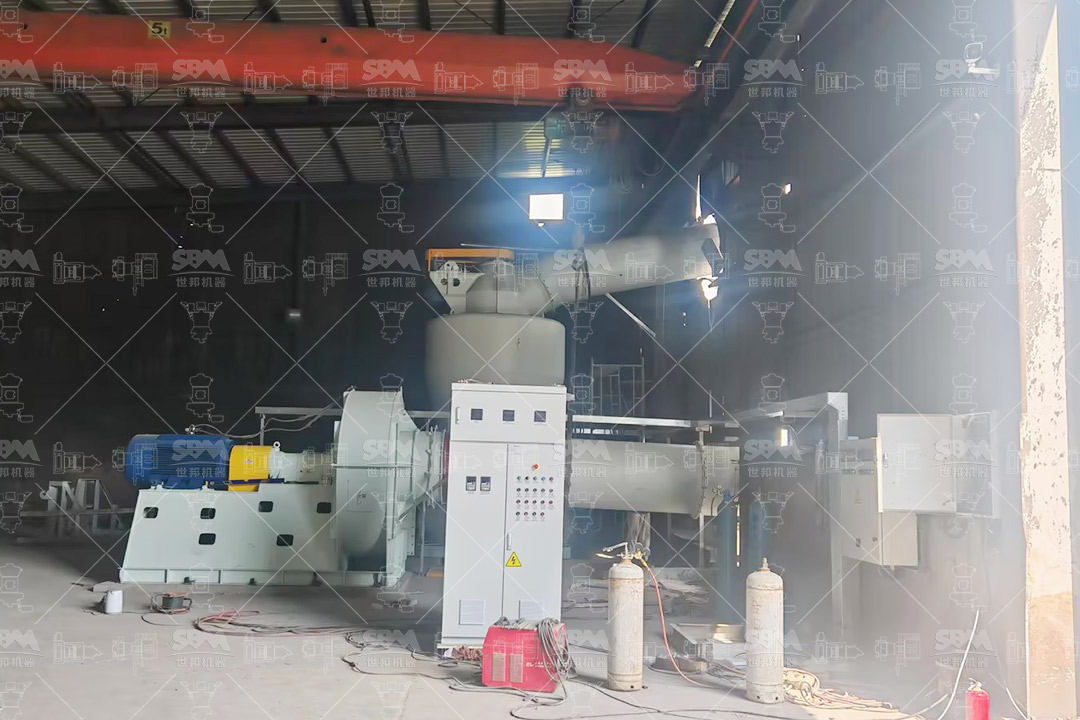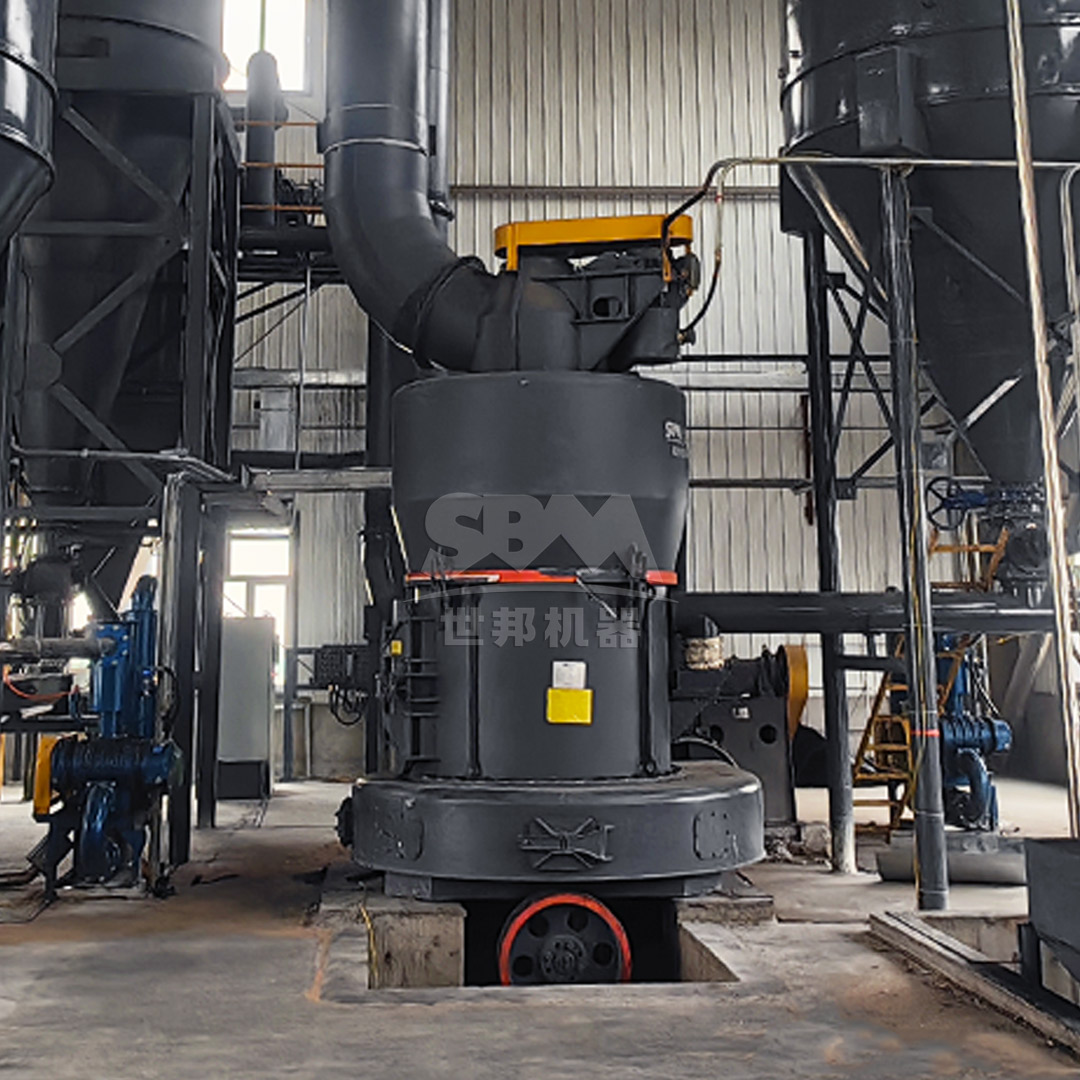Soil pH optimization stands as one of the most fundamental aspects of successful agriculture. As acidic soils continue to challenge farmers worldwide, agricultural lime has emerged as the most effective and economical solution for pH correction. The production of high-quality agricultural lime requires specialized grinding equipment capable of transforming raw limestone into precisely graded powder that maximizes soil amendment effectiveness.
The efficacy of agricultural lime depends significantly on its fineness and chemical composition. Finer lime particles react more quickly with soil acids, providing faster pH correction and nutrient availability improvements. This is where advanced grinding technology becomes crucial – modern limestone grinding machines must produce consistent particle sizes while maintaining energy efficiency and operational reliability.
Agricultural lime quality is determined by several key factors: calcium carbonate equivalent (CCE), particle size distribution, and moisture content. Optimal lime should have a minimum of 80% passing through a 60-mesh sieve and 50% through a 100-mesh sieve. This specific particle size distribution ensures both immediate and long-term soil pH correction, with finer particles providing quick reaction and coarser particles offering sustained release.
| Particle Size | Reaction Time | Soil Impact Duration |
|---|---|---|
| 20-60 mesh | 2-3 years | Long-term correction |
| 60-100 mesh | 1-2 years | Medium-term effect |
| 100+ mesh | Several months | Immediate response |
The transition from traditional hammer mills to sophisticated vertical roller mills and ultrafine grinding systems has revolutionized agricultural lime production. Modern grinding equipment offers precise particle size control, reduced energy consumption, and enhanced production capacity. These technological advancements have made high-quality lime more accessible and affordable for farmers globally.

Selecting the appropriate grinding equipment is paramount for efficient agricultural lime production. Different grinding technologies offer varying benefits in terms of particle size control, energy efficiency, and operational costs. Understanding these options helps producers optimize their lime manufacturing processes.
For most agricultural lime applications requiring fineness between 30-325 mesh, the MTW Series Trapezium Mill represents an optimal solution. This robust grinding system combines high capacity with exceptional energy efficiency, making it ideal for medium to large-scale lime production facilities.
The MTW Series features several technological advantages specifically beneficial for limestone processing. Its curved air duct design minimizes airflow resistance, reducing energy consumption while maintaining consistent product quality. The wear-resistant shovel blades significantly lower maintenance costs, a critical factor in continuous production environments. With capacities ranging from 3-45 tons per hour, these mills can serve everything from regional distribution centers to major agricultural cooperatives.
| Model | Capacity (t/h) | Main Motor Power | Output Fineness |
|---|---|---|---|
| MTW110 | 3-9 | 55 kW | 30-325 mesh |
| MTW138Z | 6-17 | 90 kW | 30-325 mesh |
| MTW175G | 9.5-25 | 160 kW | 30-325 mesh |
| MTW215G | 15-45 | 280 kW | 30-325 mesh |
What sets the MTW Series apart in agricultural lime production is its integrated bevel gear transmission system, achieving 98% transmission efficiency. This directly translates to lower operational costs and enhanced reliability. The comprehensive dust collection system ensures environmental compliance, a growing concern in mineral processing operations.

For producers targeting the premium agricultural lime market or requiring extremely fine limestone powder for specific soil conditions, the SCM Ultrafine Mill offers unparalleled performance. Capable of producing powder with fineness between 325-2500 mesh (D97 ≤ 5μm), this advanced grinding system creates lime products with maximum reactivity and soil penetration.
The SCM series incorporates vertical turbine classification technology that ensures precise particle size distribution without coarse powder contamination. This is particularly important for agricultural lime, where consistent fineness directly correlates with soil amendment effectiveness. The intelligent control system automatically maintains target fineness, reducing operator intervention and ensuring product consistency.
Energy efficiency represents another significant advantage of the SCM Ultrafine Mill. Compared to traditional jet mills, it delivers twice the production capacity while reducing energy consumption by 30%. This combination of precision and efficiency makes it an excellent choice for specialized lime products targeting high-value crops or problematic soils.
| Model | Capacity (t/h) | Main Motor Power | Output Fineness |
|---|---|---|---|
| SCM800 | 0.5-4.5 | 75 kW | 325-2500 mesh |
| SCM1000 | 1.0-8.5 | 132 kW | 325-2500 mesh |
| SCM1250 | 2.5-14 | 185 kW | 325-2500 mesh |
| SCM1680 | 5.0-25 | 315 kW | 325-2500 mesh |
Successful agricultural lime manufacturing extends beyond selecting the right grinding equipment. A comprehensive approach to production workflow ensures consistent quality, operational efficiency, and cost-effectiveness. The integration of proper material handling, grinding, classification, and packaging systems creates a seamless production environment.
High-quality agricultural lime begins with proper raw material selection and preparation. Limestone should be carefully sourced for calcium carbonate content and minimal impurities. Pre-crushing to appropriate feed sizes (typically ≤50mm for MTW mills and ≤20mm for SCM ultrafine mills) ensures optimal grinding mill performance and longevity.
Material handling systems must be designed to provide consistent feed rates to the grinding mills. Variable frequency drives on feed conveyors and precision weighing systems help maintain stable operation, preventing mill overload or underutilization. Proper storage of raw limestone protects against moisture absorption and contamination.
The heart of agricultural lime production lies in the grinding process itself. Modern grinding mills incorporate sophisticated control systems that monitor multiple parameters including motor load, grinding pressure, classifier speed, and air flow. These systems automatically adjust operational parameters to maintain target fineness and maximize throughput.
For agricultural lime production, the grinding process must balance several competing objectives: achieving target particle size distribution, minimizing energy consumption, reducing wear part costs, and maintaining production capacity. Regular monitoring of grinding media condition and timely replacement of wear parts ensure consistent product quality and prevent unexpected downtime.

After grinding, precise classification separates the limestone powder into desired size fractions. Modern classifier technology allows producers to tailor their products to specific agricultural requirements. Some operations may produce multiple lime grades for different applications or customer preferences.
Proper storage of finished agricultural lime is crucial for maintaining product quality. Storage silos must protect against moisture absorption and contamination. Automated packaging systems ensure accurate weighing and secure packaging for distribution. Bulk handling systems for large agricultural operations require special consideration for dust control and material flow.
The business case for modern limestone grinding equipment extends beyond simple production capacity. Comprehensive economic analysis must consider energy efficiency, maintenance requirements, environmental compliance, and product quality premiums.
Advanced grinding systems like the MTW Series Trapezium Mill and SCM Ultrafine Mill significantly reduce energy consumption compared to traditional grinding technologies. The MTW series’ curved air duct design and integrated transmission system minimize energy losses, while the SCM series’ efficient classification system reduces recirculation of fine material. These efficiency improvements directly impact production costs and environmental footprint.
Modern agricultural lime production must address multiple environmental considerations. Dust control represents a primary concern, with advanced pulse jet dust collectors achieving efficiency rates exceeding international standards. Noise reduction technologies, such as the SCM series’ soundproof chamber design (≤75dB), minimize impact on surrounding communities.
Water conservation has become increasingly important in mineral processing. While agricultural lime production typically involves dry grinding processes, responsible water management in ancillary operations demonstrates environmental stewardship. Many modern grinding facilities incorporate water recycling systems for equipment cooling and dust suppression.
The agricultural lime industry continues to evolve, driven by technological advancements and changing agricultural practices. Several emerging trends are shaping the future of limestone grinding and lime product development.
The growth of precision agriculture creates demand for lime products tailored to specific soil conditions and crop requirements. Advanced grinding systems capable of producing precisely controlled particle size distributions enable manufacturers to develop specialized lime formulations. These may include enhanced reactivity products for quick pH correction or extended-release formulations for long-term soil management.
Agricultural lime increasingly forms part of comprehensive soil amendment blends that may include micronutrients, organic matter, and soil conditioners. Modern grinding facilities are adapting to handle multiple materials and produce homogeneous blends. This trend requires flexible grinding systems capable of processing various materials while maintaining precise quality control.
The integration of Industry 4.0 technologies transforms agricultural lime production. Remote monitoring systems allow operators to track equipment performance and product quality from anywhere. Predictive maintenance algorithms analyze operational data to anticipate maintenance needs before equipment failure occurs. These digital technologies enhance reliability, reduce downtime, and optimize production efficiency.
Optimizing soil pH through high-quality agricultural lime remains a cornerstone of productive and sustainable agriculture. The selection of appropriate limestone grinding technology directly impacts product effectiveness, production economics, and environmental performance. Advanced grinding systems like the MTW Series Trapezium Mill for standard agricultural lime and the SCM Ultrafine Mill for premium applications provide producers with the tools to meet evolving market demands.
As agriculture continues to face challenges from soil acidity and nutrient management, the role of precisely manufactured agricultural lime becomes increasingly important. Investing in modern grinding technology not only enhances production efficiency but also contributes to improved soil health and agricultural productivity. By understanding the capabilities of different grinding systems and their application in agricultural lime production, manufacturers can position themselves for success in this vital industry.